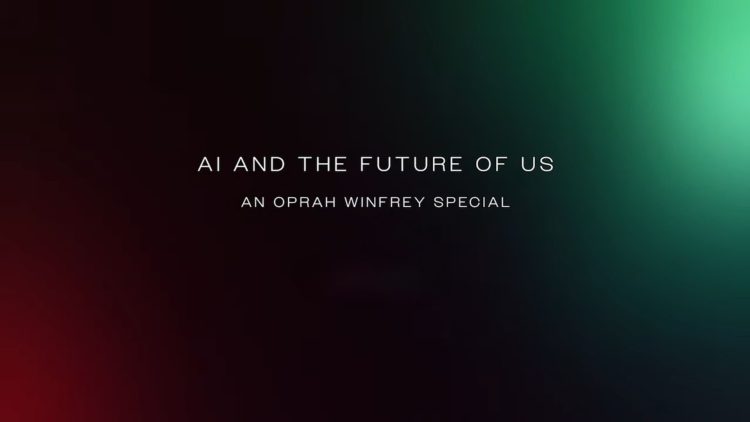On Thursday, Oprah Winfrey discussed AI. The special, “AI and the Future of Us,” featured guests like OpenAI CEO Sam Altman, tech influencer Marques Brownlee, and FBI Director Christopher Wray. Bill Gates joined the program for a segment on AI’s impact on society. The program made viewers think about what the future holds for AI.
A conversation about AI and the future of us
Oprah set the tone for the night with a somber reflection on the rapid evolution of artificial intelligence. She emphasized that AI is leaping into the mainstream, whether the world is ready for it or not. “We are the most adaptable creatures on this planet,” she said. “We will adapt again, but keep an eye on the real thing. The stakes could not be higher.” It was clear from the start that this speech was not about celebrating AI breakthroughs. Instead, the focus was on how to responsibly navigate the uncharted territory opened up by AI.
As Oprah’s words reflected a shared sense of concern, the program evolved into deeper conversations with key guests such as Sam Altman and Bill Gates. Each offered their perspectives on the state of AI and the challenges ahead.
Sam Altman: Balancing the potential and risks of AI
OpenAI CEO Sam Altman was Oprah’s first guest and wasted no time diving into the basic mechanics of AI. According to Altman, current AI systems, including ChatGPT and the newly released o1, are designed to predict word sequences and, in doing so, grasp the patterns and concepts underlying the data. But not everyone agrees with Altman’s view. While Altman presents AI as learning deeper connections within data, critics argue that AI is still only following statistical patterns, not truly understanding them.
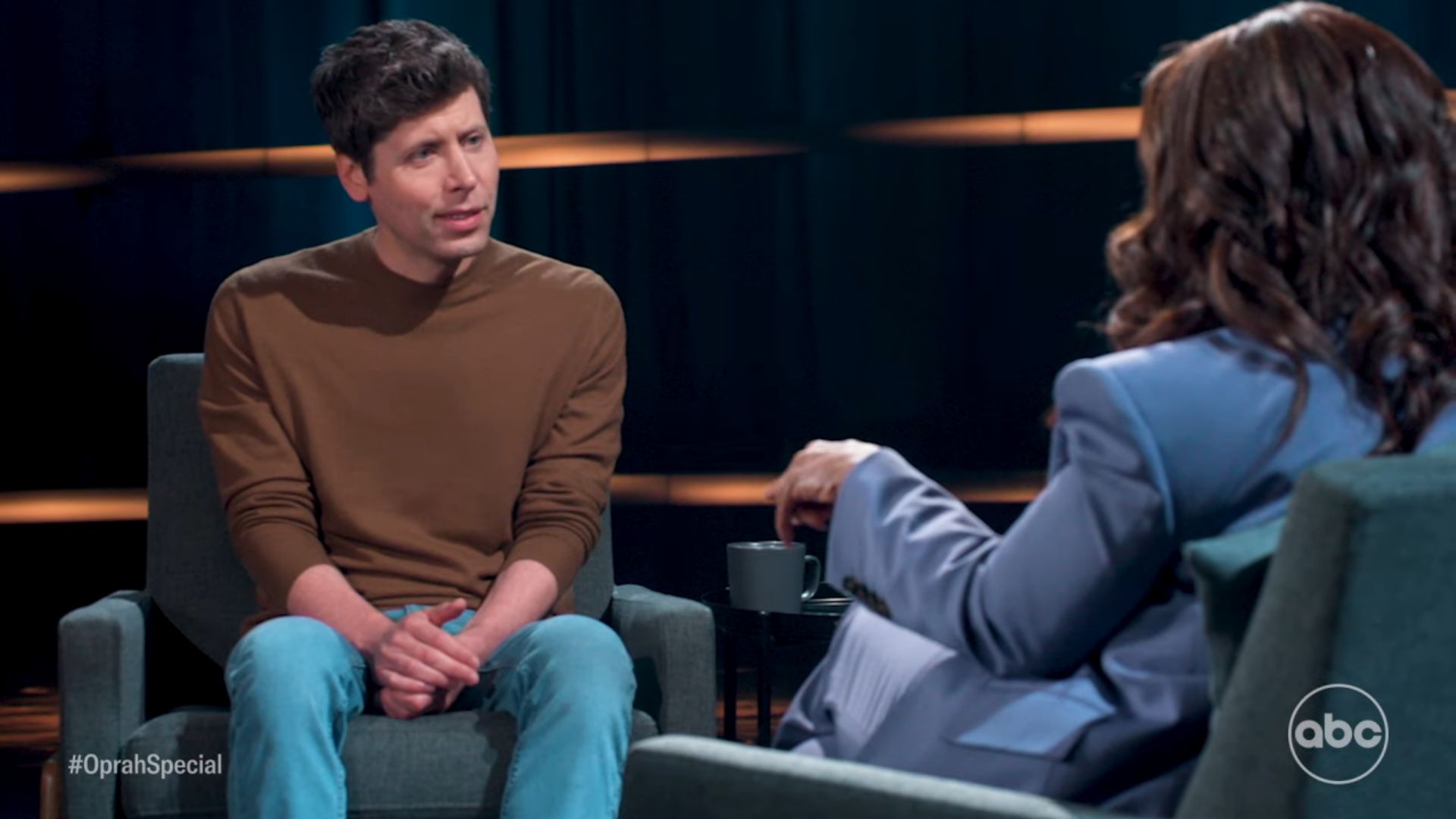
Despite over-promising the capabilities of today’s AI, Altman was quick to emphasize the need for government intervention in testing AI systems for safety. He likened the need for regulation in AI to the testing of airplanes and pharmaceuticals, emphasizing that the risks AI poses to society require serious attention. However, his advocacy for regulation has raised some skepticism given OpenAI’s opposition to California’s AI safety bill (SB 1047), which has received support from AI leaders such as Geoffrey Hinton.
While Altman expressed optimism, he was careful to sidestep questions about his influence on the development of AI. Oprah asked him why the public should trust him, but Altman remained vague, emphasizing that trust is something OpenAI aims to build over time. Altman’s non-response drew further attention when Oprah mentioned a headline that characterized him as “the most powerful and dangerous man in the world”. Altman disagreed with that label but acknowledged that the direction of AI is a responsibility that weighs heavily on him.
What is SB 1047?
California Senate Bill 1047 (SB 1047) is a law that makes sure that AI systems are safe. The bill, passed in 2024, sets requirements for AI developers, particularly those building complex models with the potential to cause harm if misused. SB 1047 requires developers to add a “full shutdown” feature to AI systems. This feature lets developers or authorities stop an AI system if it’s dangerous, especially in sensitive industries like healthcare, finance, or energy. The goal is to prevent AI from causing harm in critical sectors.
The bill also says that developers must create safety plans for how their models will prevent harm. These protocols must include safeguards against misuse, such as cyberattacks or weapons. They must be reviewed and updated regularly to stay up to date. Developers must submit redacted versions of these protocols to the California Attorney General. SB 1047 also emphasizes risk assessment. Before releasing an AI model, developers must assess the risks and put in place the right safety measures. If a model is too risky, developers cannot release it.
A deep dive into Deepfakes
One of the most chilling moments of the special came when the discussion turned to Deepfakes, a technology that can create hyper-realistic fake videos. Marques Brownlee, known for his tech insights, showed how advanced AI-generated videos are. Showcasing the capabilities of OpenAI’s new video generator Sora, Brownlee both impressed and made Oprah a little nervous.
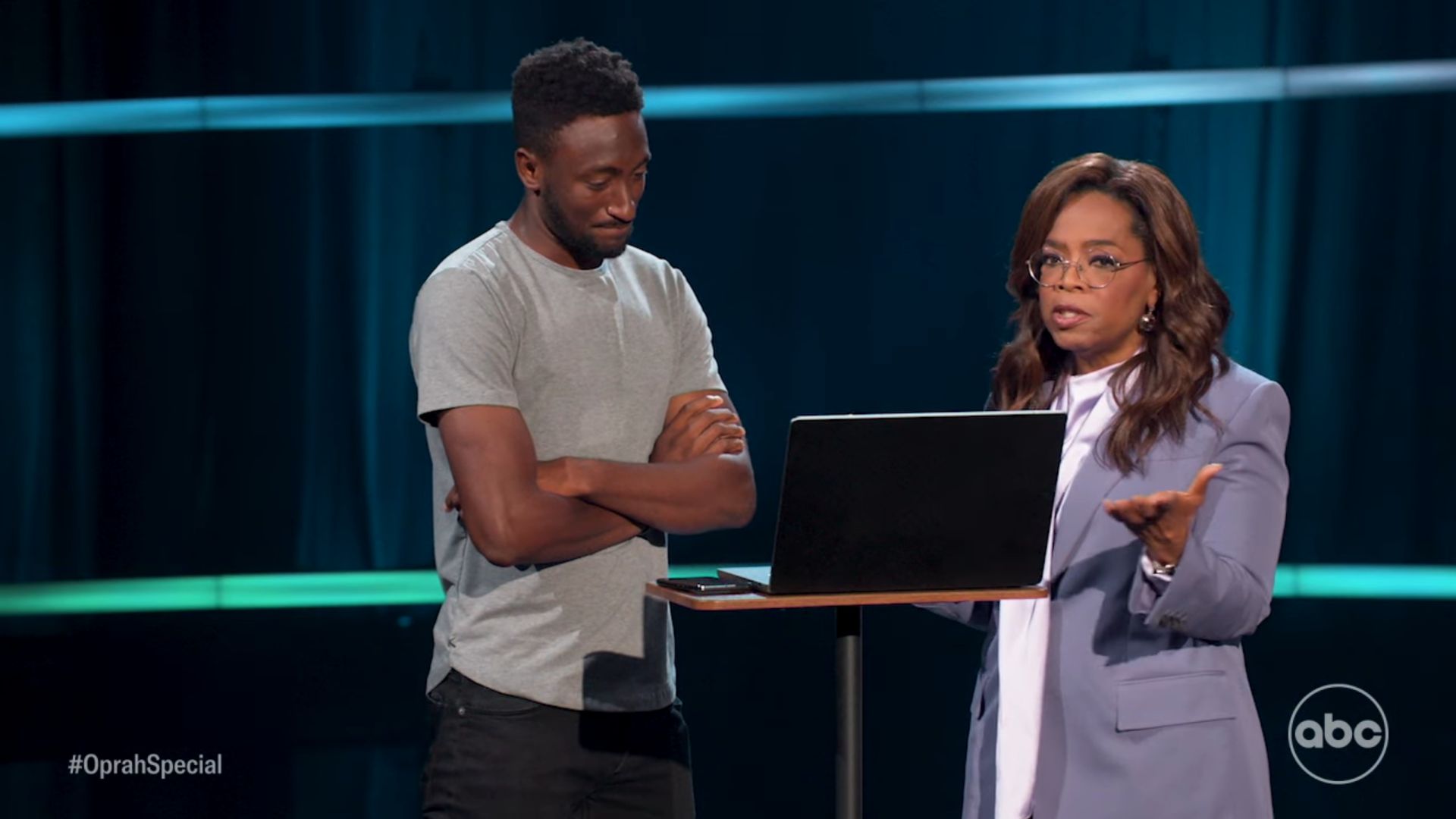
Brownlee’s demonstration served as a springboard to a conversation with FBI Director Christopher Wray, in which Wray shared his personal experiences encountering deep fakes produced by AI. Wray described how AI was used to create a video of himself saying things he never said, underscoring how persuasive and dangerous such technology can be. Wray expressed growing concerns about how AI is being used for nefarious purposes, particularly in crimes such as sextortion, which has seen a sharp increase with the use of AI.
Wray was not all doom and gloom, though. He explained that while AI tools like Deepfakes pose real threats, society has a responsibility to remain vigilant and focused. He emphasized the need to be especially vigilant about misinformation circulating ahead of the upcoming US presidential election. According to Wray, deceptive AI content is not a future risk; it is already here, affecting daily interactions on social media. Wray’s words of caution reminded viewers of the dark potential of AI.
Bill Gates: The promise of AI in medicine and education
Not all episodes were so tense. Oprah turned to Microsoft founder Bill Gates for a more optimistic perspective. Gates has long argued that technology is a force for good, and AI is no exception. He shared his hope that AI will revolutionize areas such as healthcare and education, bringing greater efficiency and improving the human experience.
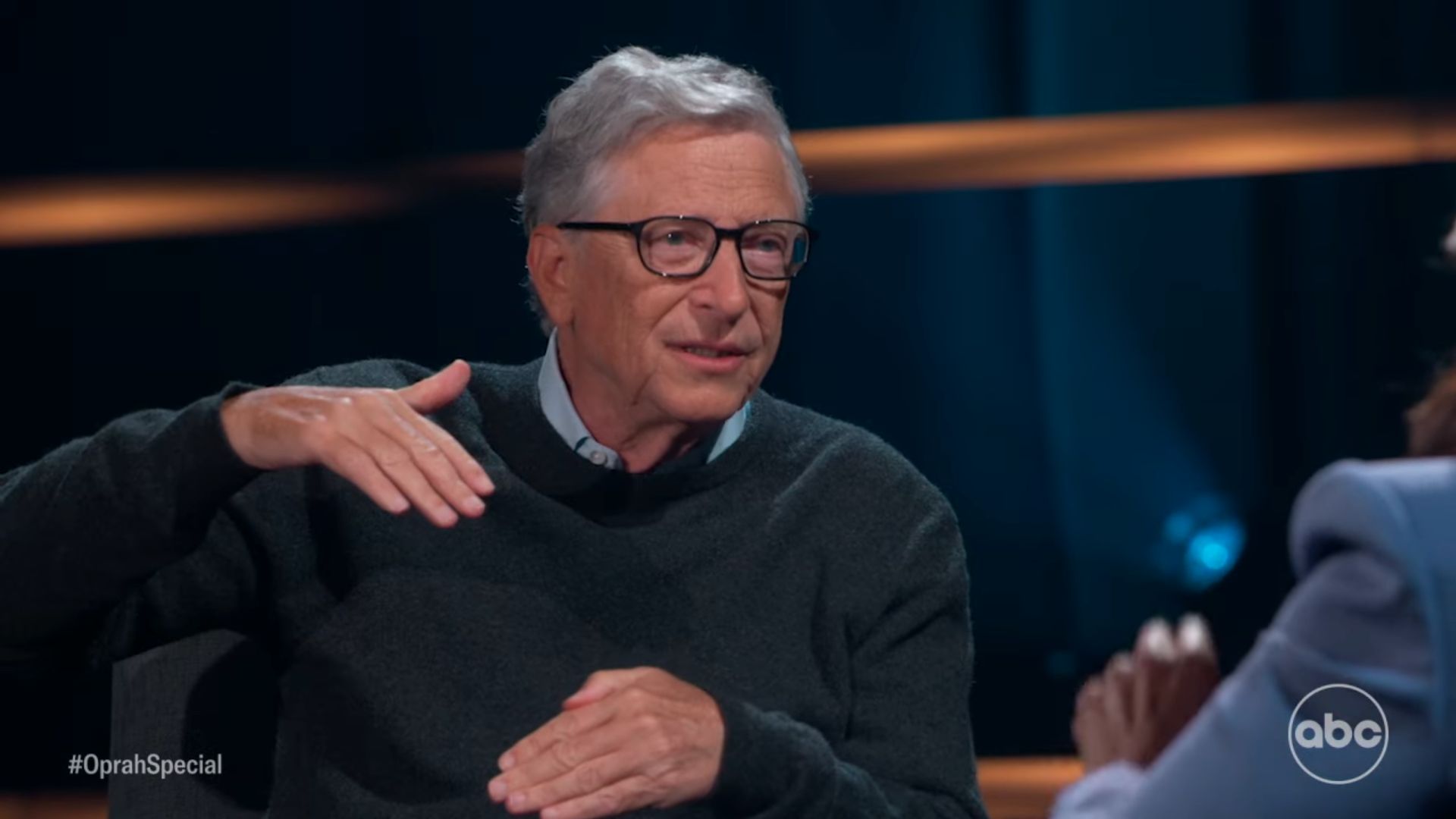
Gates painted a hopeful picture, especially in medical appointments, where AI could act as a supportive third party. “Instead of looking at a computer screen, the doctor interacts with you and the software makes sure it’s a really good transcript,” he explained. Gates’ vision of AI is one in which technology enhances rather than diminishes human interaction. But even Gates’ optimism could not escape the realities of AI’s limitations, as concerns about bias and inappropriate education took a back seat.
The tech giant’s vision extends to the classroom, where Gates describes AI as a personalized teacher who is always available and able to adapt to individual learning needs. However, Gates has ignored growing concerns about the misuse of AI in educational institutions. While AI has enormous potential to enhance learning, fears of plagiarism and misinformation have led many schools to take a cautious approach.
The ongoing impact and societal impact of AI
As the special program came to a close, the overarching theme became clear: AI is developing faster than society can fully comprehend. While AI promises incredible advances in areas such as medicine and education, its risks are just as profound. From deep fraud to misinformation, the misuse of AI poses ethical dilemmas that are still being resolved.
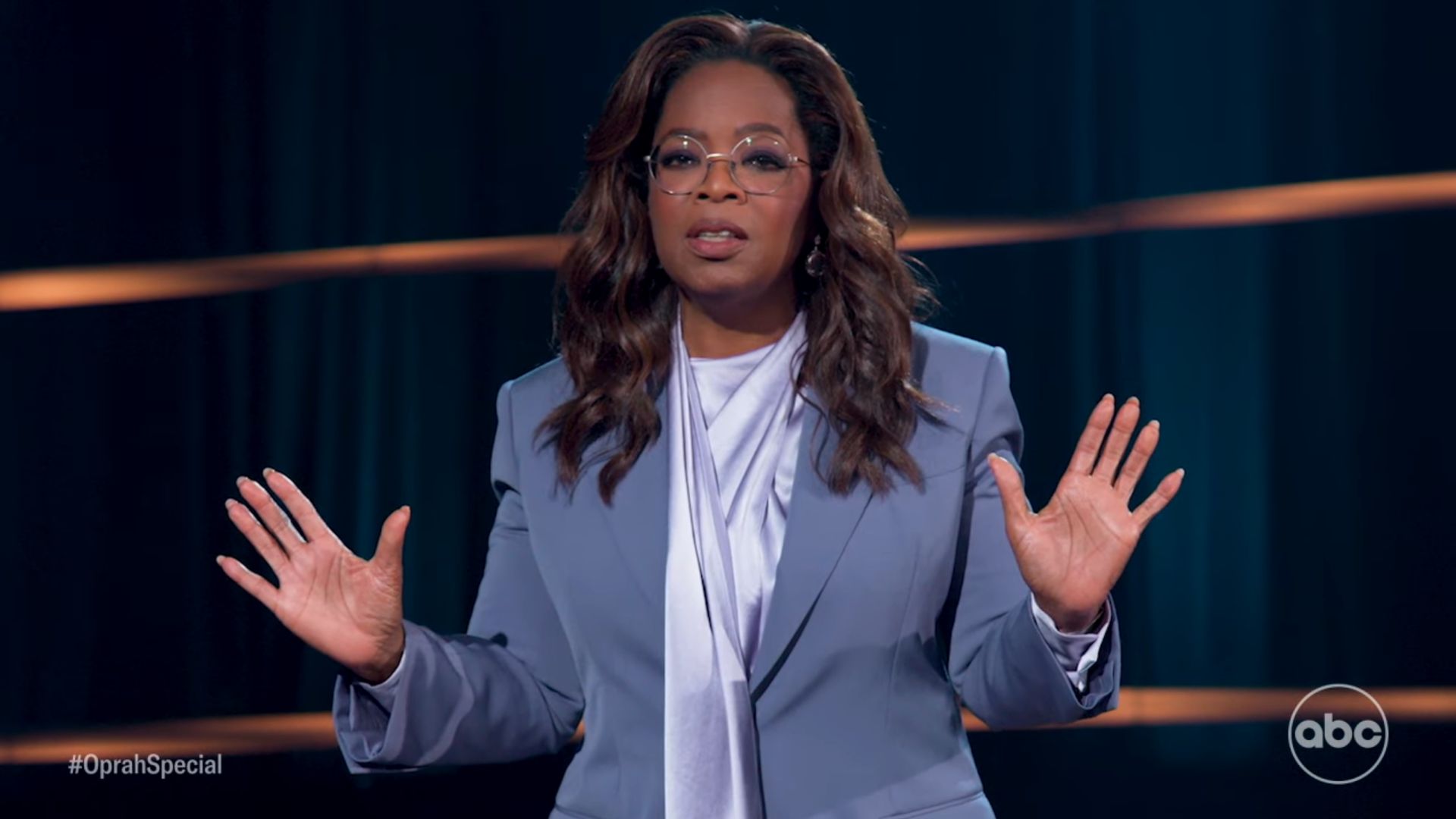
Oprah’s special didn’t provide all the answers, but it successfully opened the door for further discussion on how humanity can cope with the rapid advancement of AI. Figures like Sam Altman and Bill Gates may have different approaches, but they both agree on one thing: AI is here to stay, and managing its impact will require careful thought and collaboration.
Oprah’s distinctive mix of curiosity and cautious optimism left the audience with more questions than answers, but perhaps that was the point. In a world where technology continues to outpace regulation and understanding, it’s not about knowing all the facts right away, but about being engaged and informed.
Image credits: ABC / YouTube

